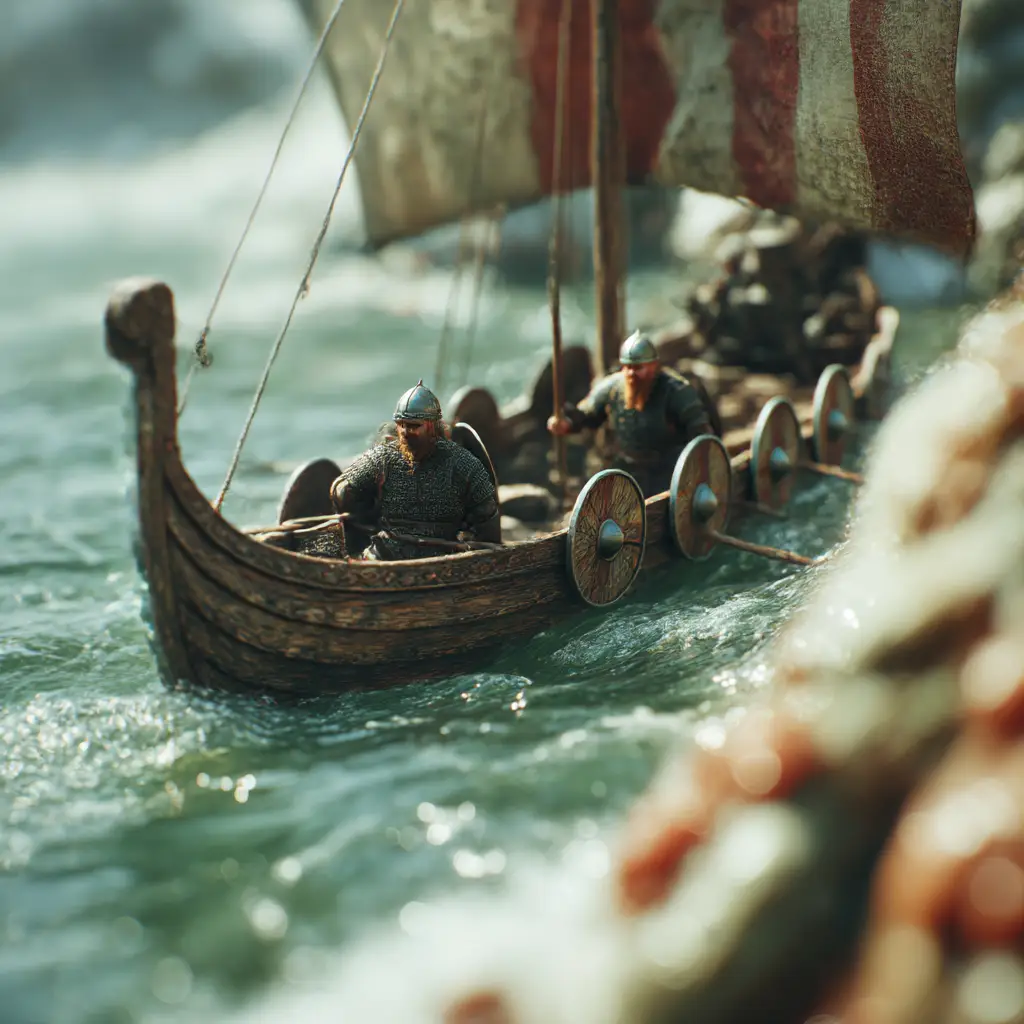Does “Viking” mean “pirate raid”? Short answer: sometimes, but that is an oversimplification. In contemporary medieval sources the word and its cognates are often glossed or translated with words like “pirate” or “raider,” and a víking could certainly be a pirate in the narrow sense. However, Viking-age seafarers carried out a wide range of maritime activities: raiding and piracy, yes, but also trade, colonisation, mercenary service, exploration and seasonal movement. In Old Norse the distinction is clearer: víking is the voyage or raid, víkingr the person who participates. Equating “Viking” only with “pirate” flattens that variety and risks misleading readers about the economic, legal and social contexts in which these voyages occurred.
The word “Viking” comes from Old Norse and originally described an activity more than an ethnic label. The Old Norse noun víkingr generally meant a person who took part in a víking, and the feminine noun víking referred to the voyage or raid itself. In other words, to be “on a viking” was to be engaged in a seaborne expedition that might involve raiding, trading or exploration rather than to belong to a permanent social class called “Vikings.”
Scholars debate the deeper linguistic roots. One traditional explanation links víkingr to vik, meaning a bay, inlet or creek, which would make a víkingr someone who came from or used sheltered inlets. Another hypothesis ties the word to nautical vocabulary and verbs meaning “to move” or “to turn,” suggesting a technical, seafaring origin. Because the evidence is complex and partly later (the Old Norse forms are best attested in sources written after the classic Viking Age), modern etymologies usually present several plausible routes rather than a single certain origin.
Early appearances of cognates of the word occur outside Old Norse: Old English and Old Frisian contain forms like wicing (Old English) which scholars connect to the same root. In medieval English and continental sources the term most often referred to the activity of raiding or to people who conducted such expeditions; it was not originally a blanket ethnic label for all Scandinavian people. The widespread modern use of “Viking” to mean the people, culture and period of Scandinavia from about the late 8th to the 11th century is a later development, popularised from the 18th century onwards.
How historians and writers use the word today matters. Many historians prefer to treat “viking” as a verb or role — someone who went viking — and reserve “Viking” with a capital letter for the broader cultural period or for popular usage. Popular culture tends to reduce the term to “violent raider,” which is why the image of horned helmets and constant pillage persists despite archaeological and textual evidence of more varied behaviour. If you are writing for a public-facing website, clarify which sense you mean: the specialised activity (raiding, trading expeditions) or the broader cultural group (people of Scandinavia in the early medieval period).
“Viking” is not simply a synonym for “pirate.” Historically the word referred to voyages and the people who took part in them; those voyages could include piracy but also trade, settlement and exploration. The modern, broader meaning that groups together a culture and era developed later and is shaped by centuries of historical writing and popular imagination.



